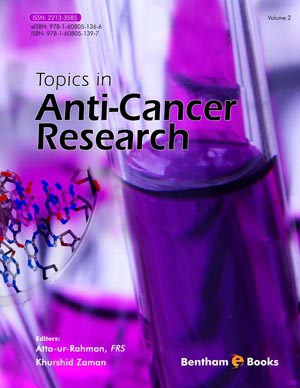Abstract
The Ras/Raf/MEK/ERK mitogen-activated protein kinase (MAPK) pathway mediates cellular responses to different growth signals and is frequently deregulated in cancer. There are three Raf kinases-A-Raf, B-Raf, and C-Raf; however, only B-Raf is frequently mutated in various cancers. The most common B-Raf mutation involves a substitution of a glutamic acid residue to a valine moiety at codon 600. Subsequently, the MAPK pathway is constitutively activated, even in the absence of any growth signals. Although early attempts to target Ras have not yielded any viable drug candidates, many novel compounds inhibiting the activities of B-Raf and MEK have been developed and investigated in clinical trials in recent years and have shown promising result. The first MEK inhibitor (CI-1040) lacked efficacy in clinical trials, but its low toxicity encouraged the search for novel compounds-now there are over a hundred open clinical trials employing various B-Raf and MEK inhibitors. Several of these trials are now in Phase III. In this chapter, we will discuss new patents and patent applications related to inhibitors of the Ras/Raf/MEK/ERK pathway and some recent clinical trial results.
Keywords: ARQ736, AS703026, B-Raf inhibitors, dabrafenib, ERK, GDC-0879, heterocyclic compounds, imidazole derivatives, MEK inhibitors, MEK162, RAF265, refametinib, regorafenib, RO4987655, selumetinib, sorafenib, TAK- 733, trametinib, vemurafenib, XL281.






















